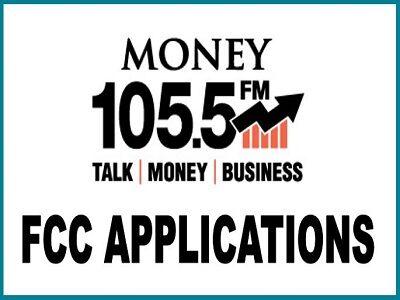State stepping in to fill gaps in services to military families, veterans
Regional News

Audio By Carbonatix
2:45 AM on Friday, October 17
Madeline Shannon
(The Center Square) – Several new efforts to help California’s military families and veterans are ramping up as resources provided by the federal government dry up because of the federal government shutdown.
Two pieces of legislation that passed this year, Assembly Bill 88 and Senate Bill 67, expanded access for high school students who are children of active duty service members to be able to get Cal Grants and scholarship money from the state’s Middle Class Scholarship program. These are for students whose parents still maintain a primary residential address in California while serving out a tour of duty overseas.
“If the active military member who is stationed outside of California has any dependent with an address in California, that family member, that dependent, should be eligible for any CalGrant or any scholarship program,” Assemblyman Tri Ta (R-Westminster), who sponsored Assembly Bill 88, told The Center Square.
Ta also sponsored Assembly Bill 81, which would have required the California Department of Veterans Affairs to conduct a study of mental health among female veterans in California. That bill was vetoed by Gov. Gavin Newsom on Oct. 11.
“We all know right now, under California law, we don’t have any programs to help any female veterans regarding issue of suicide,” Ta told The Center Square. “So that was the reason I introduced the bill, and we’re really disappointed by [Newsom] vetoing that bill.”
Ta’s concern about veterans also extends to unhoused veterans, he told The Center Square.
“On the street right now, we see a lot of homeless veterans,” Ta told The Center Square. “I want to see the state continue to come up with more programs and funding available for our homeless veterans.”
Programs to help veterans keep a roof over their heads might not be that far off. One of the biggest efforts led by the state this year to help veterans includes the announcement on Thursday that more than 700 new homes would be built for veterans and others experiencing homelessness, a press release from Newsom’s office said. That program to build new homes is paid for by Proposition 1 money, a measure that was passed by California voters in 2024.
Prop. 1 includes more than $2.1 billion in funding for housing that includes services meant exclusively for veterans, according to Newsom’s office -- a program officials are calling the “Homekey+” program. Homekey+ would provide local communities across the state with the money to build permanent, supportive housing for these veterans. That $2.1 billion is just part of a larger $6.4 billion Behavioral Health Bond meant to pay for housing, behavioral health services and other supportive resources, according to Newsom's office.
"California once again demonstrates national leadership in providing housing solutions for veterans and their families,” said Lindsey Sin, the Secretary of the California Department of Veterans Affairs, in a press release issued Thursday.
Several other efforts were rolled out this year to help military families and veterans in California. Veterans who get military retirement pay and families who receive payments from the federal Survivor Benefit Plan can exclude as much as $20,0000 from state income taxes every year, and the state’s Department of Social Services paired with the U.S. Department of Defense to expand child care access this year to help military families.
Those who help veterans on the ground in communities across the state see certain already-pervasive problems getting worse with the federal government’s shutdown, which is now in its third week.
“A lot of our veterans, as well as our employees in the government, are up in the air, kind of lost,” Sterling Barbour, the vice president of Veterans Advocacy Group of America, told The Center Square. “During these times, you can’t put a veteran on hold.”
Barbour said he sees three pervasive problems in California’s veteran community -- unemployment, high rates of suicide, and high rates of homelessness.
“There’s resources out there now that can help them or at least give them some type of confidence that somebody’s there to listen to them and to see what we can do to ease them through this crisis that we’re in right now,” Barbour said.
Efforts to prioritize defense-related jobs and industries in California, allowing veterans to attend college at the state’s public schools tuition-free and creating resources for veterans to buy homes and providing a path for veterans and their families to become naturalized citizens are all ways the state has tried to help the state’s military community, according to Newsom's office.
About 160,000 servicemembers and almost 1.5 million veterans live in California, according to Newsom’s office.
“Time and again the members of our military have proven their dedication and selflessness to our country,” Newsom said in a statement Wednesday. “We must honor them through our actions every single day and continue committing to their success for years to come.”



